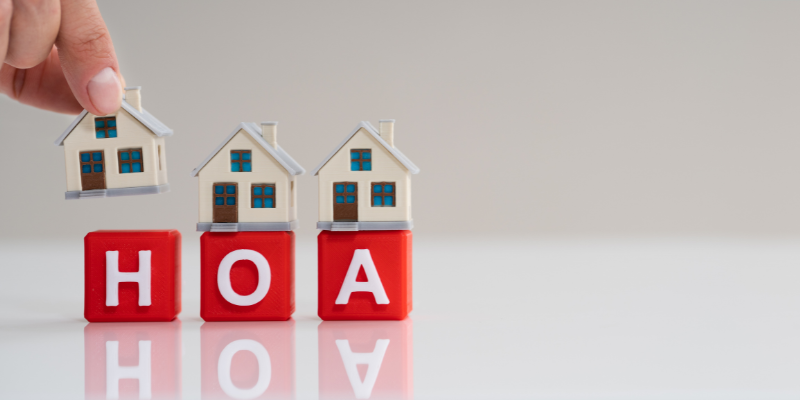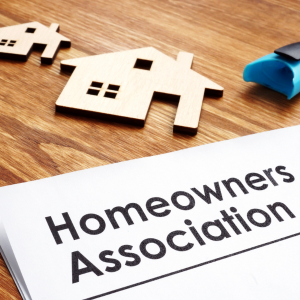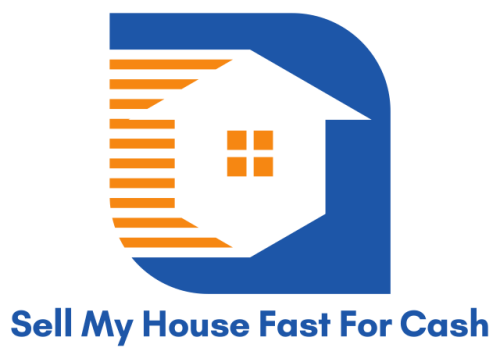
Who Pays the HOA Fees at Closing in Washington? Understanding Closing Costs
When you buy a house, it’s essential to pay close attention to the details, such as closing costs and homeowner association (HOA) fees. At closing in Washington, the buyer and seller may try to agree on who will pay the HOA fees. This is their job. Discovering who pays these fees can alter how you negotiate and manage your finances in general. Before you buy or sell something, it’s best to know how these costs are split. This makes the deal proceed more smoothly and prevents everyone from being surprised by the costs at closing.
Key Highlights
- Sellers often must settle unpaid HOA fees at closing to ensure smooth transactions.
- HOA fees fund maintenance of common areas and can influence buyer and seller negotiations.
- Providing HOA disclosures and closing letters ensures transparency in Washington home sales.
- Both parties should understand common fee practices to avoid unexpected financial burdens.
- Managing overdue HOA dues efficiently enhances property marketability and successful closings.
Understanding HOA Fees and Closing Costs in Washington
It is essential to be aware of HOA fees and closing costs when buying or selling a house in Washington. These costs can alter the terms of the real estate deal and your financial plans. HOA fees are one type of closing costs that come with selling a house. Homeowners usually pay these fees. If you know ahead of time whether the buyer or the seller will be responsible for these fees at closing, you can avoid any unpleasant surprises with your money. This section explains why homebuyers should be aware of HOA fees and their significance in Washington real estate transactions.
What Are HOA Fees and Why Do They Matter?

Every month, people in a neighborhood pay a homeowners’ association a set amount of money to maintain community centers, pools, and green spaces. In Washington state, fees depend on where you live, how many services you want, and how big the town is. When someone wants to buy a house, they need to be aware of HOA dues. These fees, along with the mortgage and insurance, determine the monthly living expenses.
The fees put money into repair funds that can be used for major jobs, such as roof replacements or maintaining roads in good condition. This helps maintain high home costs and standards in the neighborhood. When you sell your home for cash in Washington, you won’t have any money problems if you pay your dues on time. You can also use the community’s services. They must provide proof that they have paid their HOA fees in order to close the deal. This is because fees that aren’t paid can slow down the deal or make it harder to close.
Both buyers and sellers should be aware of their HOA responsibilities early in the process. Both buyers and sellers should factor these costs into their long-term budgets. Maintain accurate payment records to prevent any issues. Things go more smoothly and your property investment is protected when you are aware of Washington’s HOA fees.
The Role of HOA Dues in Home Sales
HOA fees are a big part of selling a house in Washington. They change how the deal goes through and how much it costs all at once. It can be harder or take longer to close if you don’t pay your group fees on time. Before putting their house on the market, most people must pay off any outstanding HOA fees. Therefore, the customer doesn’t have to incur any debt. This clarifies things and fosters trust throughout the deal.
The HOA report is a crucial component of this process. It informs you about the community’s rules, its finances, and any upcoming bills that are due soon. The law in WA requires these statements to be made to protect buyers and clearly outline their next steps. These are steps that real estate agents often walk their clients through. They help both sides understand how HOA fees might affect the talks and how much money is left over at the end.
The safety of an area after the sale can be seen in the long-term HOA dues. Residents who effectively manage their HOAs can help maintain high home prices and demonstrate their ability to manage finances effectively. Before you buy or sell a house in Washington, you should know who pays the HOA fees and why. This will protect your money and expedite the process.
Who Pays HOA Fees at Closing?
If someone wants to buy or sell a house in Washington’s strong market, they need to know who will pay the HOA fees at the end of the deal. This choice is typically made based on how things are usually done in the state and other factors that influence who is in charge at closing. Different places may handle these fees in various ways, but understanding how they work can help you prepare for the process and complete it more efficiently. Ensure that your financial goals align with these daily habits and practices. This is what will help the change go more smoothly.
Common Practices in Washington for Paying HOA Fees
In Washington, the seller is usually the one who pays the HOA fees at closing. They are also typically expected to settle any other outstanding debts before the deal is finalized. This ensures that the buyer receives the property without any financial obligations and fosters open communication between both parties. Generally, this is what typically happens. However, based on the market and the terms of the sale, buyers and sellers may agree to split or move these fees as part of the overall closing costs.
Most real estate agents in Washington state advise buyers to pay off all HOA fees before closing to avoid delays or disagreements. However, buyers might agree to pay off recent debts if it strengthens their offer on a desirable home. Regardless of who pays, both parties should review the state’s property rules and consult with their closing agents to ensure a smooth transaction. Knowing these rules helps protect financial interests, keeps things clear, and makes for a better-run community where people work together.
Factors Influencing HOA Fee Responsibility at Closing

In Washington, who pays the HOA fees at closing varies by deal. It’s very important what happens in the talks. If there are numerous bids, buyers may agree to pay the fees to improve their position in the deal. If the market is slow, sellers may be willing to pay more to attract buyers. As a result, the market typically determines how these fees are divided. However, this can change based on the amount of debt and the desire for real estate.
Laws and the members’ group’s financial health are also taken into account when choices are made. Washington law requires HOAs to disclose all necessary information to their members. This helps everyone see what bills they have and when they are due for payment. If you are skilled at managing the HOA and keeping finances in order, you may not encounter as many problems as someone who has to pay for large expenses. When the deal is done, the buyers and sellers agree on a fair price. Good contact, legal help, and a close examination of the HOA’s financial records have made this possible.
Managing Unpaid HOA Fees in Washington
If you don’t pay your HOA fees, it might be hard to sell your house. This could change how people in Washington buy and sell things. You should be aware that unpaid fees can affect sales deals. Sell My House Fast For Cash can help you navigate HOA fees during the home sale process. When buyers or sellers know exactly what fees are due, it’s easier to close deals smoothly and avoid delays. Planning ahead is key. Addressing unpaid HOA fees early can prevent surprises and ensure a smoother transaction for everyone involved.
How Unpaid HOA Fees Can Affect Your Sale
If you don’t pay your HOA fees, it might be hard to sell your house in Washington. There’s a chance that this will deter people from buying and closing the deal. If you don’t pay the HOA fees, the house could be taken away. Before the sale can proceed, this lien must be paid off. Lien records are public, so buyers may view them as a potential red flag when investigating the property. That’s why all bills need to be paid before someone can sell their house.
If you don’t pay your HOA fees, you could get into trouble with the law and your bank account. People who don’t want to take on more debt may not want to buy a house because of this. The seller ends up making less money because homes with past-due bills may receive lower bids or take longer to sell. It can be challenging to close a deal or secure a favorable price for something if you anticipate incurring a loss.
It takes longer for the sale to go through when dues aren’t paid. And this is because lawyers who close deals have to read and do more work. They may need to use some of the sale proceeds to pay off the debt before the sale is finalized. That’s why people who buy homes in Washington should maintain good records and promptly attend to all their HOA responsibilities. This will help the house sell faster and for a higher price. It will attract more people to buy it.
Strategies to Handle Overdue HOA Dues in Washington
To ensure a smooth sale of your Washington home, it’s advisable to settle your past-due HOA fees in advance. To begin, contact your HOA to determine the amount you owe and whether any late fees or fines are applicable. You should be clear when speaking with the HOA. Work out a payment plan or settle the matter with the person before listing your house for sale. This can help you get along again and solve your money issues. If you’re clear on how you’re going to pay off your bills, you may even qualify for lower fees or more time to do so. This will help the process go more quickly. Contact us to get guidance on managing your HOA fees.
Buyers should prioritize paying off any past-due HOA fees to avoid incurring liens or other costly fees. To create a plan you can stick to, consult with individuals who have extensive knowledge about properties and finances. You might also be able to move your cash. Also, consult with your closing attorney to ensure that all fees are accurately listed on the closing statement. People who want to buy will have more confidence in you, and issues won’t arise at the last minute.
Get rid of your HOA bills before you sell your house. This will make you look more trustworthy and raise the value of your home. To get deals done faster, avoid legal or financial issues, and prepare their homes for a quicker and smoother close in Washington, sellers should promptly pay any late fees, maintain open lines of communication, and ensure they have all the necessary information.
Essential Documents for Washington Home Sellers

There are some papers you need to pay close attention to when selling a house in Washington. These papers pertain to the homeowners’ association (HOA). The sellers must ensure they have all the necessary information so that the deal proceeds smoothly without any issues. To inform people about the state of a property and their HOA fee obligations, HOA disclosures, and closing letters are crucial documents. Everyone involved in the sale of a house in Washington state needs to understand these documents, as they significantly impact closing costs and the overall success of the process.
Understanding HOA Disclosure and Closing Letter Requirements
People in Washington who are selling their homes need to keep the HOA statement on file. Because it outlines the rules, fees, and financial health of the homeowners’ association, it clarifies things. It displays the standard fees and any additional costs that may alter the total amount a buyer will have to pay in the future. It’s not only a good idea to provide this information; it’s often a legal requirement. This helps guard buyers and builds trust. A full and accurate admission also makes a home more appealing by letting buyers know what to expect after the sale.
This letter from the HOA is also important because it confirms that all taxes and fees have been paid in full. People who want to buy this property can see this paper from the group that says the property does not have any outstanding debts. It’s possible that a sale won’t go through or will be held up without it. Everyone is on the same page with the HOA disclosure and closing letter. This helps buyers avoid disputes and ensures the Washington real estate deal proceeds smoothly and legally.
Key Considerations for Home Buyers in a Washington House Sale
In Washington, individuals seeking to purchase a house must be aware of HOA fees and the associated forms. They will be able to make smart choices that save them money. To sell your Seattle, WA, house faster, and in nearby areas, provide the buyer with an HOA statement. Any additional fees and planned price increases are disclosed to the buyer in advance. It also informs them of the group’s monthly earnings. From this, people can get an idea of how much the house will cost in the long run and choose if it fits their budget. Also, ensure you obtain a proper HOA termination letter that confirms all fees and dues have been paid in full. People will be more likely to trust the deal if they know there won’t be any surprises or unfinished business after the sale is complete.
Aside from the price, buyers should carefully review the residents’ association’s bylaws, rules, and operating procedures. These factors can significantly impact how the home is used, the buyer’s lifestyle, and its long-term value. In some HOAs, you might not be able to do certain things, like farming, remodeling, or even driving. This could alter how the house is used and maintained. People can choose if the neighborhood fits their long-term plans and dreams if they know these things. Keep in touch with the seller, real estate agent, and HOA in a well-run Washington area. This makes the process more open, speeds up negotiations, and makes it easier to buy a house.
Looking to sell your home in Washington and wondering who pays the HOA fees at closing? Sell My House Fast For Cash makes it simple. We handle everything, including HOA dues, so you won’t have to worry about unexpected expenses or delays. Get a fair cash offer and enjoy a smooth, stress-free closing process. Call us at (866) 824-3222 for a no-obligation offer today!
FAQs:
Who typically pays HOA fees at closing in Washington?
In Washington, sellers are typically expected to settle any outstanding HOA dues before the closing transaction is finalized. This ensures no financial obligations remain for the buyer, maintaining a smooth and transparent home-buying process.
Why are HOA fees important in real estate transactions in Washington?
HOA fees support the maintenance of common areas, fund reserve accounts for major repairs, and influence both buyer and seller negotiations. Understanding these fees helps in planning for ongoing expenses and ensures a clear closing process without unexpected costs.
What documents are essential for sellers regarding HOA during a home sale in Washington?
Sellers must provide an HOA disclosure, which details fees, rules, and the HOA’s financial standing, and a closing letter confirming that all dues have been paid. These ensure transparency and help facilitate a smooth transaction.
How do unpaid HOA fees affect the home-selling process in Washington?
Unpaid HOA fees can lead to liens on the property, which can complicate sales by scaring off buyers, increase scrutiny from closing attorneys, and potentially delay the sale. Sellers should resolve any dues before listing their property.
How can buyers better understand HOA commitments when purchasing a home in Washington?
Buyers should review the HOA disclosure to understand monthly dues, assessments, and potential increases. Ensuring receipt of an accurate closing letter is critical to avoid inheriting unpaid dues, thereby securing a financially sound purchase.
Helpful Washington Blog Articles
- Refinance A House After Divorce in Washington
- Condemned House Requirements in Washington
- How to Avoid Closing Costs in Washington
- How to Sell a Condemned House in Washington
- Can the Seller Back Out of a Contract?
- Selling a House with Termite Damage in Washington
- Cost of Asbestos Removal in Washington
- Sell a House with a Code Violation in Washington
- Understanding FSBO Costs in Washington
- Who Pays the HOA Fees at Closing in Washington?
- How to Sell a Hoarder House in Washington
- How Long After an Appraisal Can You Close in Washington?

